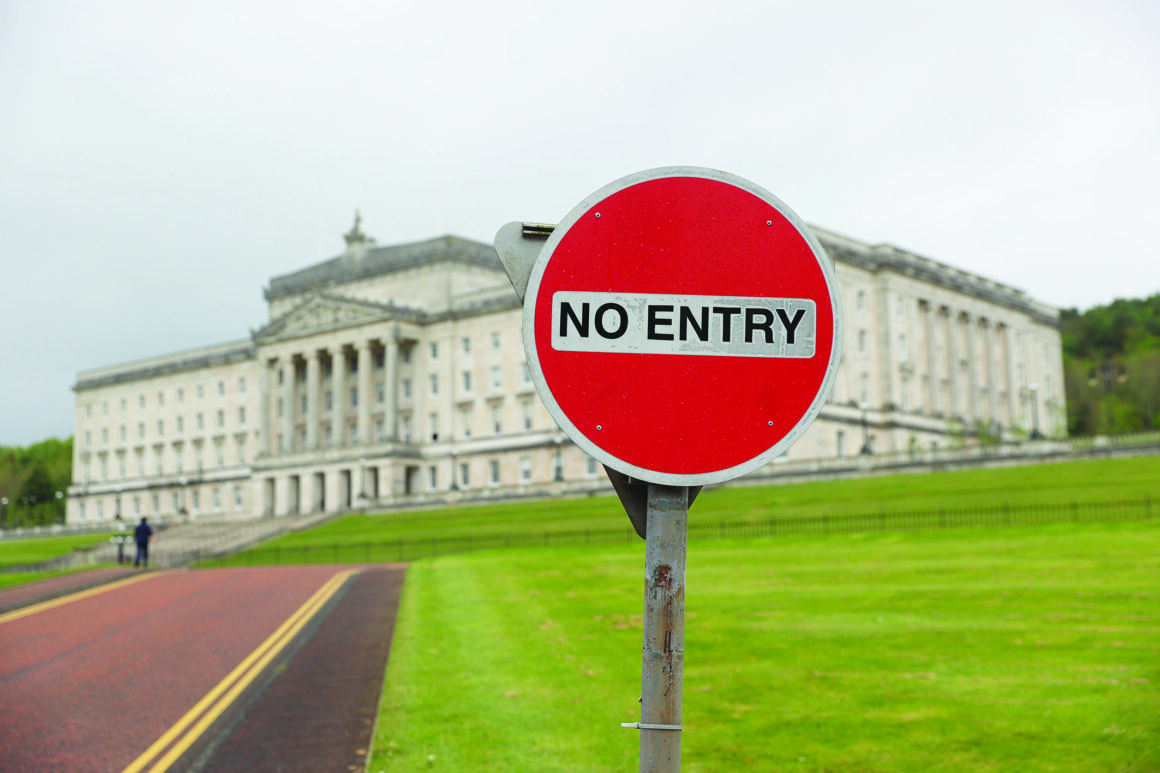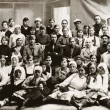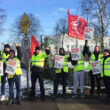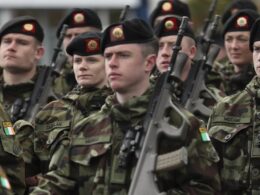By Kevin Henry
It is now almost two years since the DUP pulled out of the Executive ahead of the Assembly elections, which saw Sinn Féin become the largest party. Last year ended with a renewed sense that the institutions could be restored and, at time of writing, talks between the DUP and the Tories have restarted. Extra funding of £3.3 billion has been offered if the Assembly is restored, in part to provide pay-parity with England across the public sector. In other words the money is there but is being held ransom.
Unionist division
A significant public sector strike will take place on 18 January, however for the DUP the key issue that needs to be resolved remains the question of the east-west internal market.
DUP leader Jeffrey Donaldson also has to deal with divisions in his own party and more broadly within Unionism / loyalism. He might wish to restore the Executive following some tokenistic movement from the British government, which builds on the Windsor Framework, but in reality he is a moderate who faces a more hard-line wing around Ian Paisley Jr. and Sammy Wilson, who would be less inclined to accept a deal.
The TUV is also at their heels and making its voice heard, including putting up “Stop DUP Sell-out” posters across the North before Xmas. While the DUP has recovered in polls at TUV’s expense, this is largely based on its stand against the Protocol and a misstep would potentially reverse that trend. Similarly, the opposition that exists among Loyalist paramilitaries and Orange Order is also of concern to the DUP.
Anti-working class policies
While Stormont is in crisis, it has not stopped the DUP and Sinn Féin working closely in the councils. This was shown recently by the sectarian carve up they engaged into to fund the Market Development Association and the Greater Village Regeneration Trust at the expense of Solas (support to children with additional needs and autism), despite previous proposal for significant funding to be allocated there by all the local councillors. This was overturned by a closed meeting of the Council that reduced Solas’s funding by 97%, from £800,000 to £25,000.
This is one example in a long history of these parties failing to deliver anything but a sectarian carve up while in power, which shows working-class people can have no trust in them.
Sectarian institutions will never work
It is possible that a deal will be done to restore the Assembly. However, it would not solve any of the fundamental problems at the heart of Stormont, including the anti-working class policies and mechanisms that collapse the institutions when faced with sectarian pressures – as has happened 35% of time since the institutions were established.
Similarly, many ways of reforming Stormont have been talked about, such as abandoning ‘mandatory coalition’ (which the Socialist Party never supported) and replacing it with voluntary coalition or bloc votes. But none of these can solve the fundamental problems as long as politics is based on institutionalised sectarianism.
Opinion polls show very low levels of trust for any of the various pillars of government, with the least amount of trust lying with the Executive (17%). This points to the urgent need to build an anti-sectarian, united, working-class opposition that can provide an alternative to all the sectarian parties.












